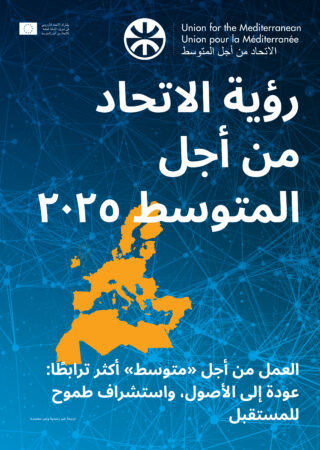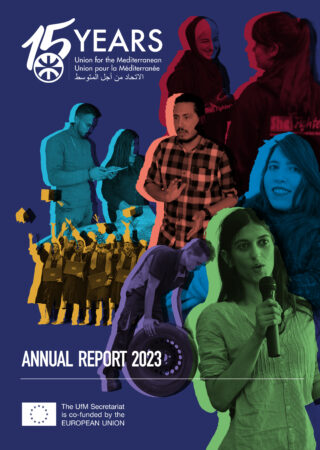
South-South in action – UNOSCC Report
The Union for the Mediterranean (hereafter referred to as UfM) is the intergovernmental Euro-Mediterranean organization gathering all 28 countries of the European Union and the 15 countries of the South and the East of the Mediterranean. As a direct continuation of the Barcelona Process2 , the launch of the UfM in July 2008 was designed to reaffirm the political ambition of its member States to strengthen regional cooperation in the Euro-Mediterranean area. Following the establishment of its Secretariat in March 2010 in Barcelona, the UfM has been continuously working, under the leadership of its Co-Presidency assumed by the European Union and the Hashemite Kingdom of Jordan, as well as with the active involvement of its member States, on the enhancement of regional dialogue and cooperation for the promotion of human development, stability and regional integration in the Euro-Mediterranean region. The scope and scale of the challenges faced by the Euro-Mediterranean region relating to security, radicalization and terrorism, irregular migration, unemployment or climate change, have reached unprecedented levels and require, more than ever before, to be addressed through a comprehensive, balanced and concerted approach. In this regard, the importance of regional frameworks such as the UfM are becoming increasingly pivotal to foster effective cooperation, especially in one of the least integrated regions in the world.3 Although inter-regional cooperation can be channeled through a national approach, it becomes both more efficient and a multiplier of opportunities through regional mechanisms that gather all concerned countries. This report shows how, through its institutional framework and governance, its working methodology, and its role as platform for global, regional, sub-regional and local multistakeholder partnerships, the UfM acts as a unique regional chapter for the implementation of the 2030 Agenda for Sustainable Development in the Euro-Mediterranean region, fostering effective dialogue among its member States through South-South and triangular cooperation modalities.
Author: United Nations Office for South-South Cooperation and Union for the Mediterranean
December 2018




